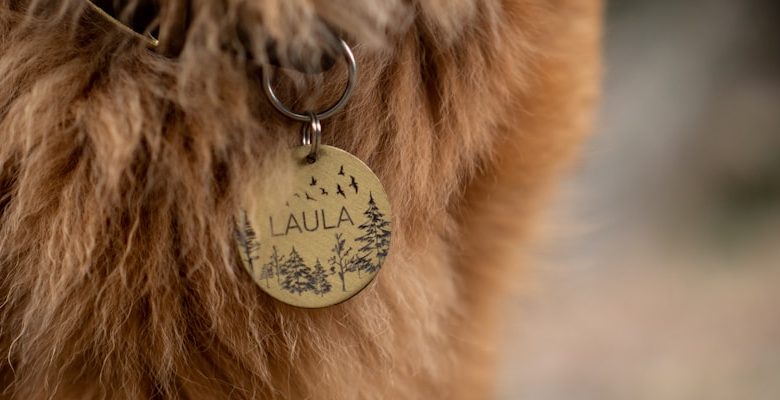How Decentralized Identity Solutions Are Evolving

- The Rise of Self-Sovereign Identity
- Implementing Blockchain Technology for Identity Management
- Challenges and Opportunities in Decentralized Identity Solutions
- Exploring the Role of Biometrics in Decentralized Identity
- Interoperability Issues in Decentralized Identity Ecosystem
- Regulatory Landscape for Decentralized Identity Solutions
The Rise of Self-Sovereign Identity
The rise of self-sovereign identity marks a significant shift in how individuals manage and control their personal data online. With decentralized identity solutions, users are empowered to take ownership of their digital identities, reducing reliance on centralized authorities for verification and authentication.
By leveraging blockchain technology and cryptography, self-sovereign identity platforms offer secure and private ways for individuals to prove who they are without sacrificing their personal information to third parties. This evolution in identity management not only enhances privacy and security but also streamlines the verification process for users across various online platforms.
As more organizations recognize the benefits of self-sovereign identity, we can expect to see widespread adoption of these decentralized solutions in the coming years. This shift towards user-centric identity management has the potential to revolutionize the way we interact online, putting individuals in control of their digital personas like never before.
Implementing Blockchain Technology for Identity Management
One of the key ways in which decentralized identity solutions are evolving is through the implementation of blockchain technology for identity management. Blockchain technology offers a secure and transparent way to manage identities, providing users with greater control over their personal information.
By leveraging blockchain technology, organizations can create decentralized identity systems that eliminate the need for centralized authorities to verify and authenticate identities. This not only reduces the risk of data breaches and identity theft but also enhances privacy and security for users.
Blockchain-based identity management systems use cryptographic algorithms to ensure the integrity and security of identity data. Each user has a unique digital identity that is stored on the blockchain, allowing them to control who has access to their information and under what circumstances.
Moreover, blockchain technology enables users to store their identity information in a tamper-proof and immutable manner. This means that once identity data is recorded on the blockchain, it cannot be altered or deleted, providing a high level of trust and reliability.
Overall, the implementation of blockchain technology for identity management is revolutionizing the way identity is verified and authenticated. It is paving the way for a more secure, private, and user-centric approach to managing identities in the digital age.
Challenges and Opportunities in Decentralized Identity Solutions
One of the main challenges in decentralized identity solutions is the issue of scalability. As more and more users adopt these solutions, the systems need to be able to handle the increased load without sacrificing security or performance. This is a complex problem that requires innovative solutions and ongoing development.
On the other hand, decentralized identity solutions also present a number of exciting opportunities. For example, they offer the potential to give individuals more control over their own personal information. This can lead to increased privacy and security for users, as well as more seamless and efficient interactions online.
Another opportunity presented by decentralized identity solutions is the ability to reduce reliance on centralized authorities. This can help to democratize identity management and empower individuals to take ownership of their own digital identities. By leveraging blockchain technology and other decentralized systems, it is possible to create a more secure and transparent identity ecosystem.
Overall, the challenges and opportunities in decentralized identity solutions are closely intertwined. As developers and businesses work to overcome the technical hurdles, they also have the chance to create new and innovative solutions that can revolutionize the way we think about identity online. By embracing these challenges and seizing the opportunities they present, we can build a more secure, private, and user-centric digital world.
Exploring the Role of Biometrics in Decentralized Identity
Biometrics play a crucial role in decentralized identity solutions by providing a secure and reliable way to authenticate users. By utilizing unique physical characteristics such as fingerprints, facial recognition, or iris scans, biometrics can verify a person’s identity with a high level of accuracy. This technology is evolving rapidly, with advancements in machine learning and artificial intelligence making biometric authentication more efficient and effective.
In a decentralized identity system, biometrics can be used to create a digital identity that is unique to each individual. This identity is stored securely on the blockchain, ensuring that personal information is protected from unauthorized access. By combining biometrics with decentralized technology, users can have more control over their personal data and how it is shared with third parties.
One of the key advantages of using biometrics in decentralized identity solutions is the convenience it offers to users. Instead of having to remember complex passwords or carry around physical identification documents, individuals can simply use their biometric data to authenticate themselves. This not only streamlines the authentication process but also reduces the risk of identity theft and fraud.
Overall, the integration of biometrics in decentralized identity solutions represents a significant step forward in the field of digital identity management. As technology continues to evolve, we can expect to see even more innovative applications of biometric authentication that further enhance security and privacy for users.
Interoperability Issues in Decentralized Identity Ecosystem
Interoperability remains a key challenge in the decentralized identity ecosystem. As various decentralized identity solutions are developed by different organizations, ensuring seamless communication and interaction between these systems becomes crucial. Without proper interoperability standards in place, users may face difficulties in accessing and utilizing their decentralized identities across different platforms and applications.
One of the main issues with interoperability is the lack of common protocols and standards among decentralized identity solutions. This fragmentation can lead to siloed systems that limit the usefulness and adoption of decentralized identities. In order to address this challenge, industry stakeholders are working towards developing interoperability frameworks that enable different decentralized identity systems to communicate and interoperate effectively.
Another aspect of interoperability issues is the need for cross-compatibility between various decentralized identity technologies. Different solutions may use different encryption methods, data formats, or verification processes, making it challenging for them to work together seamlessly. By establishing common technical standards and protocols, developers can ensure that decentralized identity solutions are interoperable and can be easily integrated into existing systems and applications.
Regulatory Landscape for Decentralized Identity Solutions
The regulatory landscape for decentralized identity solutions is a crucial aspect to consider as this technology continues to evolve and gain traction in various industries. It is essential for organizations and individuals to understand the legal and compliance requirements that come with implementing decentralized identity solutions.
One of the key challenges in the regulatory landscape for decentralized identity solutions is the lack of uniformity and clarity in regulations across different jurisdictions. As such, organizations need to navigate a complex web of regulations to ensure compliance with data protection and privacy laws.
In addition to data protection and privacy laws, organizations also need to consider other regulatory requirements such as anti-money laundering (AML) and know your customer (KYC) regulations. These regulations are designed to prevent financial crimes and ensure the integrity of the financial system.
Moreover, the regulatory landscape for decentralized identity solutions is constantly evolving as regulators strive to keep pace with technological advancements. It is essential for organizations to stay informed about the latest regulatory developments and adjust their compliance strategies accordingly.
Overall, navigating the regulatory landscape for decentralized identity solutions requires a proactive approach and a thorough understanding of the legal and compliance requirements. By staying informed and adapting to regulatory changes, organizations can leverage decentralized identity solutions effectively while mitigating regulatory risks.



